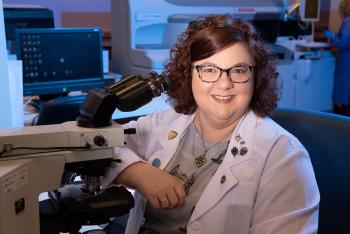Inspira Health is featured in a national colorectal cancer care report issued by Fight Colorectal...
Read More

The American Cancer Society predicts 104,270 new cases of colon cancer and 45,230 new cases of rectal cancer will be diagnosed this year. Despite being the third leading cause of cancer-related deaths in the United States, colorectal cancer rates have dropped significantly thanks to preventive screening and data-backed lifestyle changes.
Colorectal cancer is one of the most preventable cancers because polyps can take over 10 years to transform into cancer. Colonoscopies offer the benefit of providing a full view of the colon, as well as the opportunity to remove precancerous polyps and small tumors.
“During a colonoscopy, we can view the entire surface of the colon, perform a simple polypectomy and give your patients one less cancer to worry about,” said Peter J. Senatore Jr., M.D., F.A.C.S., F.A.S.C.R.S., a colon and rectal surgeon at Inspira Health. “We have a responsibility to help our patients live their best lives. And, that means getting them screened for a preventable disease like colorectal cancer.”
DNA tests have become a more reliable tool for screening. “Colonoscopies are still the gold standard of colorectal cancer screening, but DNA tests that look for cancer cells shed within stool specimens can help improve colorectal cancer outcomes with early detection,” said Dr. Senatore. “The best screening test is one your patient agrees he or she will complete.”
Additionally, genetic risk assessments and Inspira’s High Risk Cancer Surveillance Program are pioneering a positive change for people with a family history of colorectal cancer. “Inspira Insight is a risk assessment tool that offers a free online survey to patients concerned about hereditary cancer risk,” said Dr. Senatore. “If the survey determines you may be at a higher than average risk, our high-risk program will contact you to offer further assessment and possibly genetic testing, as well as counseling. The programs can develop an individualized plan for prevention and screening.”
Whether a patient has familial adenomatous polyposis (FAP) or Lynch syndrome (hereditary non-polyposis colon cancer or HNPCC), Inspira has the technology and expertise to monitor both groups very closely and identify any genetic markers.
Anal cancer is not a colorectal cancer; however, new screening techniques can make it possible for specialists like Dr. Senatore to prevent it in a similar way. While colorectal cancer impacts the colon or rectum, anal cancer is unique to the anal canal and has a separate screening process that is becoming increasingly more mainstream.
“Compared to colorectal screening, anal cancer screenings—like HPV surveillance—are relatively new. Using an advanced video anoscope system, I can perform a high resolution anoscopy (HRA) right in the office and identify any signs of HPV or precancerous lesions,” said Dr. Senatore. “We can quickly plan a procedure so I can remove lesions found.” Intervals for this type of screening are still being determined.
After receiving a colorectal cancer diagnosis, patients at Inspira can feel confident knowing their staging and treatment is assessed and monitored by a multidisciplinary team of health care professionals.
“We provide our patients with genetic counseling, laparoscopic and robotic surgeries with colon and rectal surgeons, well-trained endoscopists, radiologists and pathologists as well as medical, surgical and radiation oncologists,” said Dr. Senatore. “Our multidisciplinary team meets regularly. Working in the same cancer center even allows us to walk a patient to see another specialist and ensure a warm hand-off. We offer personalized care for each patient no matter where they are in their cancer journey.”
In addition, Dr. Senatore says that while the need for a stoma, or bag, is decreasing with current treatment protocols for patients receiving colorectal treatment, Inspira’s colorectal cancer team still offers specialized enterostomal therapy nurses who provide teaching and support for patients when necessary.
At Inspira, colorectal cancer care is a coordinated, multidisciplinary effort. Dr. Senatore sees patients at Inspira’s cancer centers in Mullica Hill and Vineland. For more information, or to refer a patient to the Colorectal Cancer program, call 800-640-8989.

Inspira Health is featured in a national colorectal cancer care report issued by Fight Colorectal...
Read More
Inspira doctor shares how a balanced gut microbiome can be your ally in the prevention and early...
Read More
Colorectal cancer is expected to cause approximately 52,000 deaths this year. Here are the symptoms...
Read More